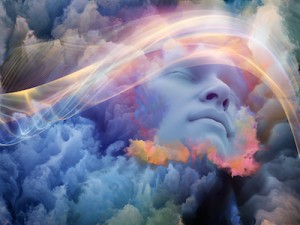
By Steve Beckow, July 11, 2021
(Golden Age of Gaia)
Because of the events related here, I’m in not in a state to be reading extensively in alt news. Thus I’m not able to post “News in Brief” at this time.
I didn’t have long to wait to find our what comes next.
The next morning I woke up with my mind completely blank.
A friend acknowledged being in the same space. Completely quiet inside. All senses still.
It’d be one thing if there were nothing happening outside. Every night, at some hour of darkness, everything reaches that degree of stillness for a while.
But this is happening inside and it isn’t an experience I would even have considered. Not this degree of stillness and silence.
I’m in the midst of it now and I realize I jeopardize going deeply into it to remain at the keyboard. But I’m not here for my own Self-Realization. I’m here to record the process, to give an ethnographic account of one person’s Ascension.
It always works to describe the condition you’re in. For some reason, that makes it expand.
Heavens. Am I at stillpoint?
Is this what stillpoint is like? If I were, notice that I don’t know. If I don’t know – and I’ve studied Ascension since 2008 (and much earlier as the Rapture of 1984, etc.) – how would the ordinary person on the street know? What would they think of this seeming stillpoint?
Ohhhhhhhhhh…… This is what St. John of the Cross meant by the “dark night of the soul.” He didn’t mean a tremendously-challenging spiritual crisis. He meant the senses going silent and still, leaving one in nothingness, deprived of all assistance – “without a foothold,” as he put it. (1) Let me let him tell it:
“A soul must ordinarily pass through [three] principal kinds of night (which spiritual persons call purgations or purifications of the soul) in order to reach the state of perfection [mukti or Ascension]. Here we shall term these purgations nights, because in [all three] of them the soul journeys in darkness as though by night.
“The first night, or purgation … concerns the sensory [physical] part of man’s nature. The second [night is] the night of the spiritual part of man’s soul. [The third night is] the passive purgation.
“[The] first night is the lot of beginners, at the time God commences to introduce them into the state of contemplation…. The second night or purification takes place in those who are already proficients, at the time God desires to lead them into the state of divine union. This purgation, of course, is more obscure, dark, and dreadful.” (2)
“[The first] dark night is a privation and purgation of all sensible appetites for external things of the world, the delights of the flesh, and the gratifications of the will. All this deprivation is wrought in the purgation of sense. … One is not freed from the sufferings and anguish of the appetites until they are tempered and put to sleep. … The first [reason we call this journey toward union with God a night] has to do with the point of departure, because the individual must deprive himself of his appetite for worldly possessions. This denial and privation is like a night for all his senses.” (3)
This privation is what in fact occurred on June 7, 2021 and lasted on and off for three weeks. And it now results in a total stillness and silence – I’m sure not forever, but until it reaches its culmination, whatever that is.
So the dark night is part of the purgative phase, purification, the cleansing we’re going through, known to all religions. This takes them to the second stage, contemplation.
That seems to be where I’m standing now. I seem to be at stillpoint for the moment and the only way forward seems to be meditation or contemplation.
With all my study and experiences, I cannot confirm that this is stillpoint. Does that not show the superficiality of all our efforts? We have broad knowledge but not deep. Or high, whichever metaphor you prefer.
The stillpoint space is yielding to bliss. I’m going to stop here and begin a new entry.
Footnotes
(1) “Without a foothold you must seek Him out – no face nor form,
alone – tasting there something I dont know
that one may come on randomly.”
(St. John of the Cross in Willis Barnstone, trans., The Poems of Saint John of the Cross. New York: New Directions, 1972; c1968, 87.)
Is this not that state?
(2) St. John of the Cross in Kieran Kavanaugh and Otilio Rodriguez, trans. Complete Works of St. John of the Cross. Washington: Institute of Carmelite Studies, 197, 73.
(3) Ibid., 74.
Stillpoint: The Dark Night of the Soul | Steve Beckow
![Stillpoint: The Dark Night of the Soul | Steve Beckow]() Reviewed by TerraZetzz
on
7/11/2021 10:57:00 PM
Rating:
Reviewed by TerraZetzz
on
7/11/2021 10:57:00 PM
Rating:



